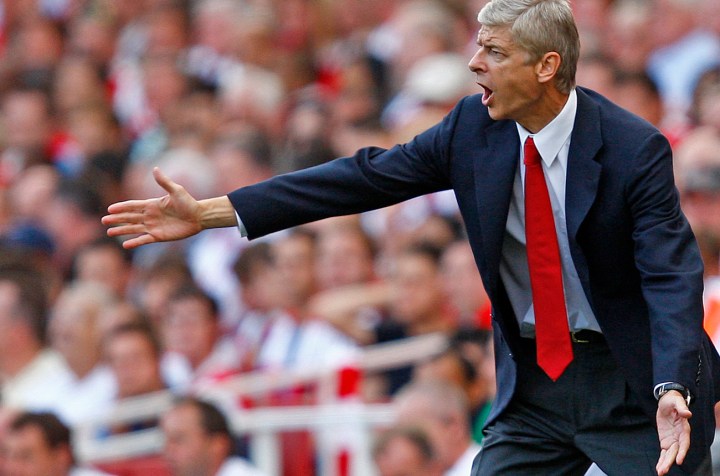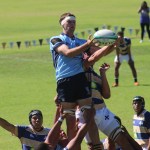Sport
Analysis: In Arsène some of us trust

There is a certain phrase, spoken with great reverence in and around North London, which goes: “Arsène knows”. It signifies the great trust in Arsenal FC manager Arsène Charles Ernest Wenger. It seems people are forgetting this phrase in the wake of the Carling Cup final defeat. By SIPHO HLONGWANE.
It was by any measure a cruel defeat. After waiting six years for a trophy, a split second of miscommunication between an inexperienced goalkeeper and an unsighted defender in the 89th minute handed the Carling Cup to Birmingham. After Birmingham striker Nikola Zigic headed the ball tamely goalward, Arsenal keeper Wojciech Szczesny charged out to collect it. To the dismay of millions of Gunners around the world, his central defender Laurent Kolscieny failed to anticipate the move and cleared the ball, only to have it strike Sczesny awkwardly and roll perfectly into the path of Obafemi Martins. The striker, on loan to Birmingham from Rubin Kazan, needed no second invitation to tap the ball into an unguarded net.
The Arsenal fans were blind with fury. But Wenger refused to toss his players to the wolves. “A little misunderstanding had a great consequence on the game and both players are destroyed. I blame no-one,” he said to BBC Sport after the match. “When these things happen late in the game, there is no time to rectify it.”
Ever the gentleman (except when Alex Ferguson is around), Wenger said, “Both teams gave everything. Congratulations to them – they got the trophy.” Certain Arsenal fans (the word is used in the loosest possible way) didn’t quite see it that way, and bayed for Wenger’s blood after Sunday’s defeat.
That is not going to happen. Wenger is at the Emirates to stay, in one form or another. The Frenchman is a titan of football, and easily the greatest foreign-born manager ever to ply his trade in the Barclays Premier League.
Arsenal owes a lot to the Wenger philosophy. Make no mistake about it, Wenger is a philosopher. In a league characterised by brutish British football purveyed by rugged-faced managers, Wenger instilled a version of total football, invented by Rinus Michels, brought to life by the 1974 Dutch international football team and perfected by FC Barcelona. In a league where hard running, hard tackling and hard smashing is championed, Arsenal play a beautiful, fluid passing game that, on its good days, overwhelms the opposition and feeds the strikers up front with countless goal-scoring opportunities. His strategy works too. With three Premier League titles and four FA Cup trophies, he is Arsenal’s most successful manager.
Wenger believes in building teams, not buying them. He has an uncanny ability to spot raw, unpolished talent, and to give it the right environment to transform it into superstardom. He has repeatedly taken unknown players – like George Weah, Patrick Vieira, Nikolas Anelka, Thierry Henry, Fransesc Fabregas and Theo Walcott – nurtured them and transformed them into world-class footballers.
His latest unearthing has huge potential. Ever since David Seaman retired from football in 2004, the Gunners have experimented with a string of goalkeepers like Jens Lehmann, Manuel Almunia and Lukasz Fabianski, but none of them has proven to be sharp enough or dependable enough. Almunia continues to be display an unspeakable lack of judgement, and Fabianski’s lack of cool has earned him the nickname “Flapianski”. In the young Wojciech Szczesny, Wenger may have found his dependable goalkeeper. Szczesny received a rude introduction to top-flight football. He made his Premier League debut against Manchester United on 13 December 2010 after both Almunia and Fabianski dropped out of the squad through injury. Everyone expected the young Polish goalkeeper to wilt under the barrage of United’s merciless strikers, but Szczesny was astonishingly composed and made several critical saves, conceding only one goal which gave United the win.
The sweet-talking, brash Szczesny perfectly encapsulates Arsenal’s strengths and weaknesses. Tall, agile and incredibly self-assured for a 20 year old, Szczesny is a brilliant young footballer. But his inexperience flashes through nonetheless, like it did in the Carling Cup final. The Arsenal team (averaging an age of 23.6 years) is packed with young players, most of whom have never lifted an Arsenal trophy. The Carling Cup was supposed to be a rite of passage, giving the team a taste of silverware that would inject it with the Arsenal killer instinct last seen in the invincible 2003-2004 side. Alas, the boys must wait a little longer to become men. The waiting is getting unbearable for some Gunners fans.
Arsenal is undoubtedly Wenger’s magnum opus, but his career as a coach (preceded by an unremarkable career as a player) began back in his native France, where he coached Nancy-Lorraine from 1984. It didn’t go well. The side was eventually relegated. In 1988 he joined Monaco and won the season in his first year in charge. In 1995, after failing to convince the Monaco board to let him go to Bayern Munich, he spent 18 months in Japan, managing Nagoya Grampus Eight, turning a bottom-feeder into a league contender.
After having seen enough tofu, seaweed and dolphin soup, Wenger signed with Arsenal on 1 October 1998. He finished third in the league on goal difference in his first season at Arsenal, but won the double (league and FA Cup) in his second season in charge. It was in 2001 that Wenger began crafting the Gunners after his own image, buying players and moulding the team that would go on a 48-game undefeated rampage in the 2003-2004 season, a feat last seen in Britain in 1889. Though the Gunners were narrowly beaten to the league title by Chelsea the following season, they won the FA Cup final against Manchester United in 2005.
As he had done in 2001, Wenger set about building a new team, this time based almost entirely on youth development. Wenger’s strategy of not spending much in the transfer period has been lambasted before, but authorities and fans alike are slowly coming to acknowledge the wisdom of his approach. He has been named as the most financially savvy football manager in the league, the only one to make a profit on transfers between 2004 and 2009. He made an average profit of £4.4 million every year, more than any other manager. Wenger was recently held up as an example of how a football team should be run by the Union of European Football Associations, which was a stinging slap in the face of big spenders like arch-nemesis Chelsea FC and the recently moneyed Manchester City.
Wenger’s current strategy is based around a midfield anchored by a holding midfielder, supported by one or two central midfielders, who feed to wingers and a lone striker. In Alexandre Song, Wenger has found a replacement (though still a bit green) for the talismanic holding midfielder Patrick Vieira. Fabregas spearheads the attacks, aided by the immensely talented Jack Wilshere. Samir Nasri and Theo Walcott (deputised by the equally capable, if moody Andrey Arshavin) deliver the devastating runs and probes from the wings, while the Flying Dutchman Robin van Persie can outwit any defence with his technical abilities up front.
There are holes in this otherwise well-formed team. Defensively, Arsenal has been in trouble for several seasons now. Not only are the back four short in stature, the central defence question has never been adequately answered since the departure of Kolo Touré and Sol Campbell. Current favourites Johan Djourou and Laurent Kolscieny have not gelled properly yet, and Sebastien Squillaci, the supposed “experience” signing, is not coping well with the furious pace of Premier League football.
But the team is looking a lot better than previous seasons, and with just four points separating Arsenal from league leaders Manchester United, and with the club still in the running for the UEFA Champions League and the FA Cup, the fat lady has not even begun to warm her voice up yet.
Once this Arsenal team gets into its stride, it will be unstoppable. It is just a matter of when (not “if”, as many might suggest), and Wenger will not be hurried or bullied into quick-fix solutions. He has spent 11 years on his grand project, and a cup final defeat, no matter how bitter, will not derail his plans. Speaking after Sunday’s match, Wenger said, “We have to be proud of our attitude, continue with our belief, pick ourselves up and face the other challenges we have. We will face a lot of questions after that mistake, but we have to be strong enough to stand up. It is a good opportunity to show that we have the mental strength to respond to the situation.”
The team does not have the luxury of time in the remaining weeks of this season. They face Leyton Orient on Wednesday in the FA Cup, Sunderland on Saturday and the away-tie against Barcelona on 8 March. Despite the injuries and the emotional knock of losing the Carling Cup final, Arsenal will have to pick itself up and play to win on all three fronts. It can, too. In the very capable hands of Arsène Wenger, anyone who underestimates the Gunners will pay a heavy price.
As they say at the Emirates stadium, “In Arsène we trust”. DM
Read more:
- Arsene Wenger: Arsenal will not throw away Premier League title challenge on the back of Carling Cup defeat in goal.com.
Photo: Arsenal manager Arsene Wenger reacts during their English Premier League soccer match against Portsmouth at the Emirates Stadium in London August 22, 2009. REUTERS/Eddie Keogh.





















 Become an Insider
Become an Insider